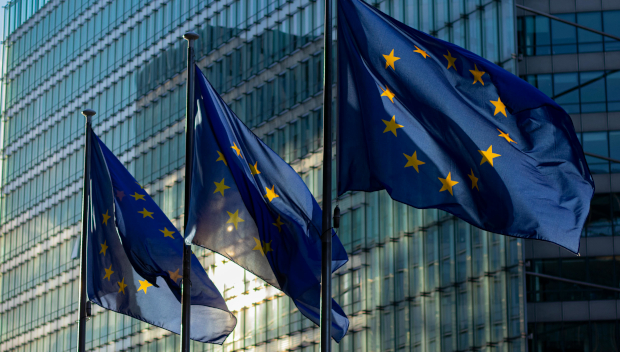
Apple’s record tax fine a test of how Big Tech sees value of Irish presence
After 10 years, four legal decisions and €13 billion put in escrow we finally have an outcome: Apple did indeed receive State aid from Ireland in the form of an arrangement that reduced its effective corporate tax rate from 12.5% to .05%.
Today’s ruling by the Court of Justice of the European Union (CJEU) is final and binding, now the State will receive billions in back taxes – money sorely needed to improve public services, complete capital projects like the National Children’s Hospital and maybe even get some houses built. Great news. You’d think. Reaction from Leinster House has been muted, with a terse statement from the Dept of Finance ranking somewhere between resigned and funereal. The phrase ‘reputational damage’ floated by the political class was conspicuous by its absence.
“The Irish position has always been that Ireland does not give preferential tax treatment to any companies or taxpayers,” the statement read. “The CJEU has found that the tax paid was insufficient and that a greater amount of taxation was required to be recovered. Ireland will of course respect the findings of the Court regarding the tax due in this case.
“Today’s judgment provides the final determination in this case and the process of transferring the assets in the Escrow Fund to Ireland will now commence in the manner prescribed in the Deed governing the operations of the Escrow Fund.”
The statement ended with a comment that the tax arrangement at the heart of the EU’s case was no longer in effect and that “Ireland is an active participant in international tax discussions and has also made necessary changes to its taxation regime as international tax rules have developed over time”. There was no Ministerial comment.
How Apple came to be hit with the biggest tax fine in history has been well covered but its complexity is such that it benefits from retelling: between 1991 and 2007 Apple was allowed to reduce its tax burden through aggressive planning that saw revenue from sales go from jurisdictions with high corporate tax rates to one with a lower tax rate.
The so-called ‘Double Irish’, was a mix of ‘base erosion and profit shifting’ (BEPS) where revenues were treated not as the sale of physical objects but as the movement of licensing fees from one business to another across jurisdictions through a network of brass plate companies with no staff. Globally popular products such as the iPod could become revenue neutral with untaxed revenue sitting in an untaxed account in Bermuda, lending cash to head office as a way to avoid the US’ corporate tax rate of 35%.
How is this chicanery the State’s fault? You can thank the Irish government of the mid-80s, which saw stateless brass place licensing companies as a way to draw American multinationals and create jobs. Did it work with Apple? Cupertino employs 5,000 staff in Ireland. Will Apple find somewhere else outside the clutches of the EU after settling up its bill? So many questions.
Let’s say Apple decides Ireland’s talent pool is too small, that most workforces are multilingual, and that it really did want to build that data centre it failed to get planning permission for. Is a 12.5% corporate tax rate the only thing the State has going for it? If so, then what of Google, Meta, Microsoft? Stateless entities are a thing of the past, will Silicon Docks follow?
The mood was different in Brussels where Executive Vice-President Margrethe Vestager heralded the CJEU decision a win for the Single Market and European tax payers. She did sound a note of caution in a lengthy statement: “In 2022, multinationals’ global corporate profits amounted to about $16 trillion. $2.8 trillion of these profits were made outside of their headquarters, in other tax jurisdictions. And about half of that was shifted to low-tax countries – including countries within the European Union. The cost is high for European citizens.”
It’s been a big year for Europe with the AI Act, Digital Markets Act and Digital Services Act all designed to create a more fair, safer space. These popular moves are being offset by moves such as the stalled rollout of Apple Intelligence, which arguably, puts Europe behind the rest of the world in artificial intelligence.
The largest tax fine in history sounds great on paper. It’s up to Apple to reaffirm its commitment to Ireland and show that a presence here is a much better wealth creator than any byzantine financial tool. The Double Irish was a product of a struggling nation. We’re so far beyond that now. If you want to worry about anything, let it be how Government is going to spend the money. Then we’ll know all about reputational damage.






Subscribers 0
Fans 0
Followers 0
Followers